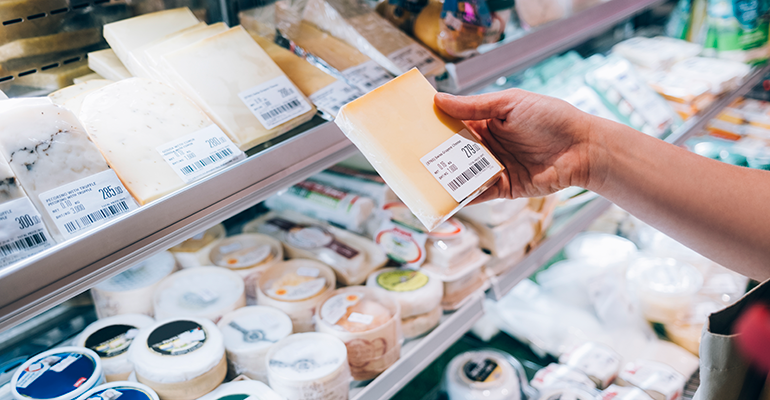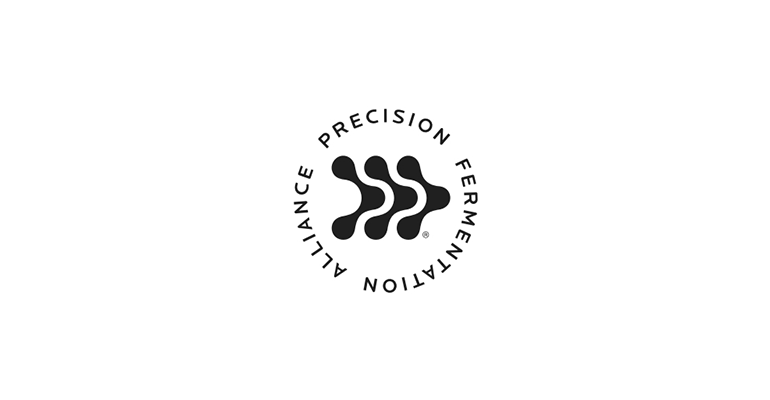News
‘A kinder, greener tomorrow’: Foodtech startups form the Precision Fermentation Alliance
20 Feb 2023
Nine foodtech firms have formed the Precision Fermentation Alliance (PFA), a trade association that aims to “exponentially accelerate” the precision fermentation industry.
The founding members of the newly created trade association are Change Foods, The Every Co, Helaina, Imagindairy, Motif FoodWorks, New Culture, Onego Bio, Perfect Day, and Remilk.

Precision fermentation uses organisms such as bacteria, yeast, fungi, or microalgae as so-called cell factories by gene-editing them and instructing them to produce molecules of interest as a by-product when they feed on a given feedstock, usually sugar. The technology has been used for several decades to produce insulin, which was previously extracted from pigs, and rennet, a coagulant used in cheese-making that is traditionally derived from the fourth stomach of unweaned calves. However, its use has expanded in recent years to include dairy proteins such as whey and casein; egg proteins; and animal fat.
“This alliance codifies what we’ve always believed: a kinder, greener tomorrow is possible through collaboration,” said the founding members in a joint statement. “This ecosystem of mission-aligned leaders stands to exponentially accelerate what any one member could do alone.”
Founded on 16 February, the trade association has several core goals:
- Promoting an understanding of precision fermentation technology.
- Establishing global transparency around ingredients and foods made with precision fermentation to build trust and familiarity.
- Educating and engaging key stakeholders throughout the food industry value chain to establish best practices regarding regulatory, manufacturing, food safety, and communications standards and compliance.
- Developing market access and the ability to operate and market products effectively by engaging with regulators.
- Unlocking public funding and public-private partnerships to accelerate industry growth.
Nicki Briggs, vice president of corporate communications at Perfect Day and chair of the Precision Fermentation Alliance, said: “There is a direct line between food production, climate, socioeconomic opportunities, and equity. How we make our food is one of the foundational ways to change the world around us, and just the beginning of the vision for this group.
“This alliance codifies what we’ve always believed: a kinder, greener tomorrow is possible through collaboration. This ecosystem of mission-aligned leaders stands to exponentially accelerate what any one member could do alone.”
 © Business Wire
© Business Wire
‘Clear communication’ key to consumer acceptance, says PFA
Vice chair of the trade association and CMO of Change Foods Irina Gerry noted that most people have eaten foods that contain ingredients made using precision fermentation for decades, such as vitamins, enzymes, and natural flavours “without much fanfare”.
Although the technology has been used for years for certain products, are consumers ready to eat bacteria-derived proteins?
Mintel food science analyst Emma Schofield said that price parity may be the decisive factor.
“If precision-fermented proteins can deliver milk and dairy products at cheaper retail price points than the current products that are ‘made by cow’, those consumers who are particularly price sensitive may be drawn to the cost-savings of these products,” she said.
Schofield noted that “behind-the-scenes” applications such as in chocolate bars or bakery products could also increase consumer acceptance rather than a ready-to-drink milk, for example.
According to Gerry, for the technology to scale up and expand to other applications, it needs “clear communication, thoughtful policy, consistent regulation, and stakeholder engagement, which this alliance is positioned to do”.
A growing global industry, says Polaris Market Research
According to Polaris Market Research, the global precision fermentation market size and share was valued at $1.3 billion in 2021 and is expected to reach $37.35bn by 2030, growing at a compound annual growth rate (CAGR) of over 48%.
Polaris said that, by geography, the North American market experienced the largest revenue share in 2021, fuelled by end applications such as dairy alternatives and meat extenders, and meat analogues.
It predicted that the Asia Pacific market share would rise between now and 2030. “Growing disposable income, rising population, and increasing demand for plant-based products are the key factors flourishing the precision fermentation industry growth in the region,” it said.
Related news

Empowering innovation in fortification and colouration
13 Nov 2025
Divi’s Nutraceuticals offers a large portfolio of innovative, high-quality ingredients for foods, beverages, and supplements, with bespoke solutions and expert support for product success.
Read more
Danone highlights digestive health as potential ‘tipping point’ for food industry
13 Nov 2025
Danone is betting on a food industry “tipping point” that will bloat the market for healthy products, particularly those related to gut health.
Read more
Standing Ovation and Bel scale up casein production from dairy co-products
11 Nov 2025
Foodtech company Standing Ovation has partnered with cheese specialist Bel Group to manufacture dairy serums for industrial-scale casein production via precision fermentation.
Read more
New UPF standard hoped to offer consumers ‘coherence and clarity’
10 Nov 2025
Ingredients companies are being urged to enter “a new era of partnership and innovation” following the launch of the industry’s first non-UPF verification scheme.
Read more
Whistleblowers accuse UK meat industry of promoting cheap, unsustainable supply
7 Nov 2025
An anonymous group of industry insiders has accused the UK’s biggest food companies of systematically driving down meat quality and welfare standards.
Read more
Cottage cheese makes a comeback as consumers call for cleaner labels
6 Nov 2025
From ice cream to dips and ready meals, cottage cheese is experiencing a renaissance as a high-protein, clean ingredient for health-conscious consumers.
Read more
Bord Bia presents Irish dairy ingredient suppliers at Fi Europe
6 Nov 2025
Dairygold Co-operative Society, The Carbery Group, and Ornua Co-operative: Meet with sustainable producers of Irish dairy ingredients at Food ingredients Europe 2025, Hall 7.2 Stand M18.
Read more
Faravelli at Fi Europe: Showcasing FARA® functional solutions for food and nutra
28 Oct 2025
At Fi Europe 2025 in Paris (stand 72M39), Faravelli showcases FARA® Customized Functional Solutions and a wide ingredient portfolio for food and nutra – delivering quality, innovation, and expertise.
Read more
Agrigum Redefined FIBER
27 Oct 2025
Agrigum has transformed gum acacia into a natural, science-backed fibre that supports gut health, sustainability, and innovation across global food and nutrition applications.
Read more
Expanding boundaries in food & beverage innovation
23 Oct 2025
IMCD and FrieslandCampina Professional expand partnership to deliver Kievit® across EMEA, enabling brands to enhance quality and accelerate time-to-market for tomorrow’s food & beverage creations.
Read more